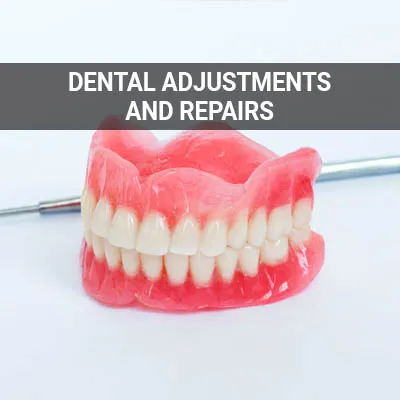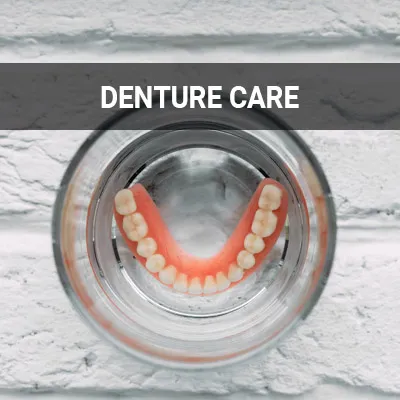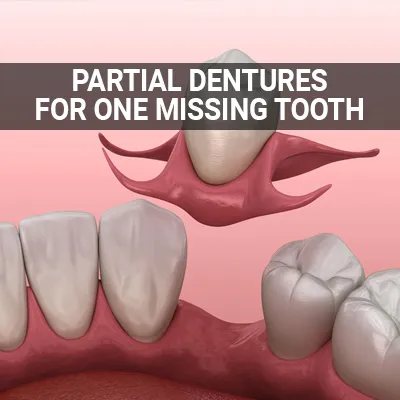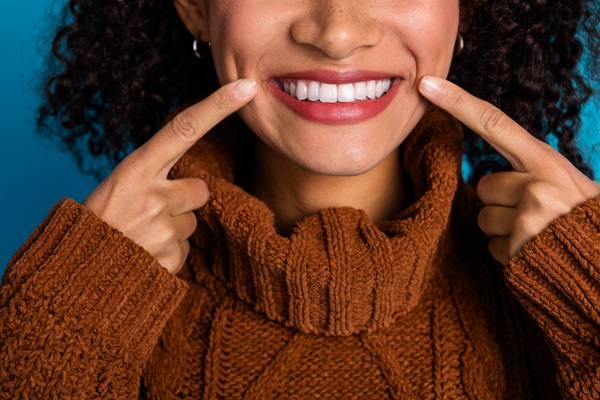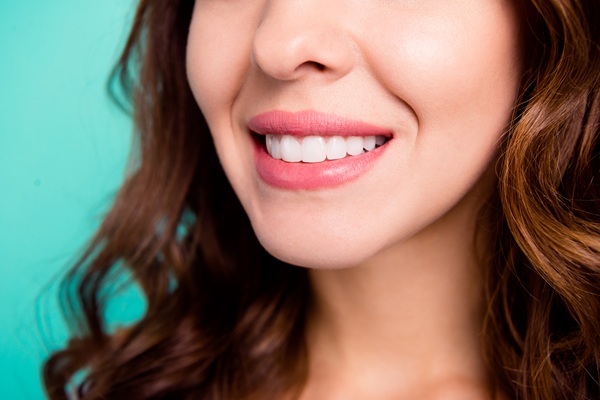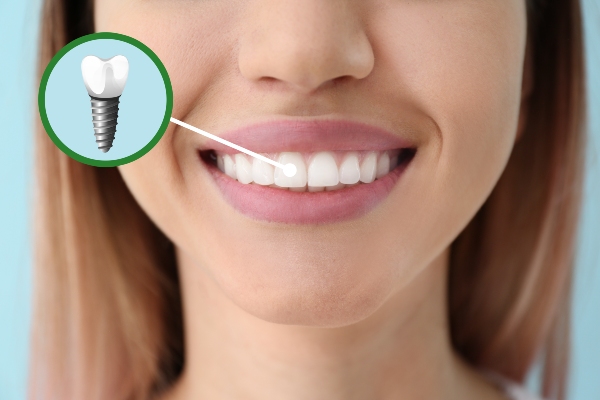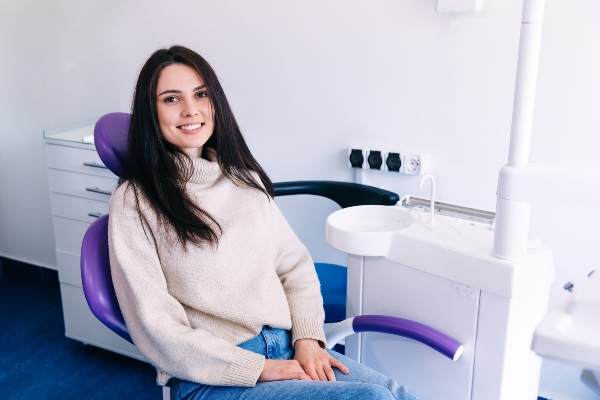Denture Relining Los Angeles, CA
Dentures improve the quality of life for many people. Over time, however, dentures may need to be relined or rebased to continue working correctly. Denture relining is the reshaping of the side of the denture that touches a person's gums or the roof of the mouth. Denture rebasing is the complete reconstruction of the base of the denture without replacing the tooth portion.
Denture relining and rebasing is available at Dr. Robert B Tamaki, DDS in Los Angeles and the surrounding area. We work with our patients to determine the ideal process to use when adjusting the fit of dentures. Properly fitting dentures can prevent soreness and oral health problems. Call us today at (310) 402-0156 to schedule an appointment.
Dentures Must Fit the Teeth
When dentures become loose, they cause a variety of oral problems. Individuals should contact our office immediately upon noticing a poor fit. If the dentures become so loose that they do not fit securely even with the help of dental adhesive, it may be time to seek the advice of a prosthodontist. WebMD also recommends looking for the following warning signs:
- Cracks and chips. If the denture base sustains damage in any way, then we need to replace it immediately. Cracks and chips cause the base to deteriorate quickly. If the dentures are still in good condition, rebasing is a wise option.
- Loose denture teeth. If the dentures become loose in the base, it could signal deterioration. Even if the base has no obvious signs of damage, it wears down with age and could cause the teeth to become unstable. When this happens, rebasing allows dentists to preserve current artificial teeth and replace only the base.
- Oral sores. Ill-fitting dentures rub against gums, creating painful sores in the mouth. If the problem is not rectified quickly, additional sores will form. Not only is this painful, but these sores could lead to infection if not treated properly.
“Individuals should contact our office immediately upon noticing a poor fit.”
Three Types of Denture Relining
The common types of denture relining procedures include hard relining, soft relining, and temporary relining. The type of relining one needs depends on that patient's situation. Here are descriptions of the three types of relining and what they involve:
- Hard Relining: Hard relining consists of the same kind of material as the denture’s original base, usually acrylic. Hard relines last around two years. After two years, the patient’s gums may have changed shape enough to need another reline.
- Soft Relining: Soft relining can last slightly longer than hard relining. Still, if the patient’s gums are steadily changing, a new hard reline may be needed before the previous one wears out. According to an article in the Journal of Dentistry and Medical Research, a soft, silicone-based denture lining may help dentures stay in place. The material used for a soft reline is molded to fit the patient’s gums, and is more comfortable than acrylic.
- Temporary Relining: A temporary reline is a special type of soft reline that uses a medicated temporary lining material to help a patient with swollen, irritated gums. Once the irritation has gone, a dental professional can take new, accurate impressions, and the soft or hard reline can be done.
One or a combination of methods could work for you. Our team suggests making an appointment once you realize dentures are not fitting right. At the appointment, the dentist can assess the situation and discuss options.
“One or a combination of methods could work for you.”
When Relining and Rebasing Are Necessary
As per the American College of Prosthodontists, the bone under a patient's gums deteriorates naturally with age. This deterioration changes the shape of the jaw in addition to altering the ridges in the gums that hold dentures securely in place. As a result, dentures become loose over time. Relining and rebasing allow dentists to preserve denture teeth and adjust the base to provide a more secure fit.
Our dentist can determine the suitability for relining or rebasing by analyzing the current fit and condition of the dentures. If the artificial teeth are in good condition, but the base needs adjustment, then these procedures are good options. The condition of the base determines whether relining or rebasing is required.
“Relining and rebasing allow dentists to preserve denture teeth and adjust the base to provide a more secure fit.”
Check out what others are saying about our dental services on Yelp: Denture Relining in Los Angeles, CA
Rebasing
According to the American Dental Association, if the base has begun to deteriorate, the dentist will recommend rebasing. This is the process in which a new base is created. The new base is modeled after the existing denture. Our team takes a new cast of the patient's mouth and uses it to create an entirely new base. We will then place the current denture teeth on this new base.
Rebasing may be necessary when the denture becomes broken or damaged, the denture base is weakened, or an immediate denture requires replacement. In-denture rebasing, only the acrylic denture base is replaced (that is, the teeth are left alone).
“…if the base has begun to deteriorate, the dentist will recommend rebasing.”
Questions Answered on This Page
Q. Are there different methods of denture relining?
Q. Why is it important that dentures must fit the teeth?
Q. When is relining and rebasing are necessary?
Q. What can I expect from denture rebasing?
Q. Why is relining is essential for denture care?
People Also Ask
Q. How should people adjust to their new dentures?
Q. What happens during a denture fitting appointment?
Q. Should I contact you immediately after damaging my dentures?
Q. What should I do if my dentures start to feel uncomfortable?
Q. What are same-day dentures?
Q. What is a partial removable denture for one missing tooth?
Relining Is Essential for Denture Care
Patients whose dentures are in good condition but fit improperly, may require denture relining. Instead of replacing the base, our dentist adds material to the current base to make it fit more securely against the gums. This process helps conform the denture base to the changed shape of the gums, providing a better fit.
Relining is a procedure that reshapes the underside of a denture to fit more snugly and comfortably on the patient's gums. It is typically a relatively short and simple process. Denture relining is necessary when bone deterioration changes the fit of the dentures.
“Relining is a procedure that reshapes the underside of a denture to fit more snugly and comfortably on the patient’s gums.”
Frequently Asked Questions
Q. What are the costs associated with denture relining and rebasing?
A. The costs associated with denture relining and rebasing depend on a number of factors, including the dentist's proposal, the type of denture reline process, and the type of dental prosthesis. When it comes to cost, we will consider your insurance plan and preferred form of payment.
Q. Are my gums in danger of receding?
A. There are several risk factors for receding gums, including but not limited to aggressive brushing, tartar buildup, smoking, genetics, diabetes, and HIV. Hormonal changes in women may also lead to gum recession.
Q. Does denture relining and rebasing hurt?
A. Improper denture repair can potentially lead to pain. At Dr. Robert B Tamaki, DDS, we will do everything in our power to minimize any risks.
Q. What are mini-implants?
A. As the name suggests, mini-implants are smaller dental implants. They have the same structure as regular implants, but consist of a one-piece screw less than 3mm in diameter. They also include a ball-shaped end protruding from the jawbone.
Q. What is the recovery time for denture relining and rebasing?
A. A patient can resume a normal lifestyle immediately after denture relining. The new fit may cause mild discomfort for a few days, but over-the-counter medications should relieve it. Patients may need to schedule a follow-up appointment with the dentist to ensure the denture fit is correct.
Q. What do I do if my denture for one missing tooth loosens over time?
A. Call us immediately for an adjustment. Avoid moving the denture around in the mouth, as this can loosen it.
Denture Terminology
Call Us Today
A person who wears dentures should be seeing the dentist at least twice each year to keep track of the condition of the dentures and avoid surprises when new dentures are needed. Denture relining or rebasing may be an option to extend the life of your dentures. Call us today at (310) 402-0156 to make an appointment.
Helpful Related Links
- American Dental Association (ADA). Glossary of Dental Clinical Terms. 2024
- American Academy of Cosmetic Dentistry® (AACD). Home Page. 2024
- WebMD. WebMD’s Oral Care Guide. 2024
About our business, license, and website security
- Dr. Robert B Tamaki, DDS was established in 1985.
- We accept the following payment methods: Cash, CareCredit, Check, MasterCard, and Visa
- We serve patients from the following counties: Los Angeles County
- We serve patients from the following cities: Los Angeles, Santa Monica, Venice, Marina Del Rey, Redondo Beach, Hermosa Beach, Manhattan Beach, and Westchester
- CA (License #DDO-33386). View License Information and Specifics
- National Provider Identifier Database (1568559011). View NPI Registry Information
- Healthgrades. View Background Information and Reviews
- Norton Safe Web. View Details
- Trend Micro Site Safety Center. View Details
Back to top of Denture Relining



